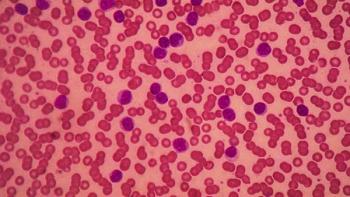
Important Information About Stage 4 Lymphoma
Important Information About Stage 4 Lymphoma – Lymphoma, as the name, suggests that relates to your lymphatic system. The system comprises a network of lymph nodes and vessels specialized to drain lymphatic fluid
Important Information About Stage 4 Lymphoma – Lymphoma, as the name, suggests that relates to your lymphatic system. The system comprises a network of lymph nodes and vessels specialized to drain lymphatic fluid. Mainly white blood cells and other defensive cells altogether called lymph fluid. It prevents bacteria, viruses, and other pathogens from spreading from one organ to another, like a filter.
Lymphoma is the cancer of all the defense cells present in lymphatic fluid. The staging of lymphoma depends upon how much it has metastasized. Stage 4 lymphoma is when it includes multiple organs. This article covers all the signs, symptoms, treatment, and prognosis of this
Types of lymphoma and its stages:
The main two types of lymphomas are:
1. Hodgkin’s lymphoma
It is the more severe form. It is very rare and affects almost 10% of people with lymphoma. The prognosis for Hodgkin’s lymphoma is poor.
2. Non-Hodgkin’s lymphoma
Almost 90% of cases reported are NHL, the most common type. The treatment involves immunosuppressants and chemo if it is diagnosed early and the prognosis is very good.
Principally, the main difference between these types is the severity and involvement of cells. So, the metastasizing rate varies for each type, and so does the treatment. Both types include cells from the spleen, thymus, bone marrow, and other parts, along with lymph nodes.
The Lugano classification determines stages of lymphoma, depending on the meta-sizing. It is either localized, regional, or distant.
Localized: it only involves the lymph node of one area.
Regional: it involves lymph nodes of any two areas, along with the involvement of the relevant organ.
Distant stage: it is spread to any major organ, such as bone marrow, spine, lungs, or liver.
Causes of lymphoma:
Uncontrolled proliferation of cells is cancer. Under normal circumstances, a cell life span is limited, and it is destroyed after that. However, cancer cells refuse apoptosis and grow to an extent where they start affecting normal physiological functions.
The main cause of lymphoma remains unknown. Although, some factors play a significant role in it, such as being older than 60 years and a family history of lymphoma. Moreover, a history of any disease like HIV, rheumatoid arthritis, celiac disease, hepatitis C, etc., can contribute to the development of the condition. The illnesses affecting the immune system also aggravate the risk of lymphoma. A history of radiation therapy or exposure to benzene-like chemicals can also exacerbate it.
Signs and symptom of stage 4 lymphoma:
At first, there are no signs or symptoms of lymphoma. Most of them are indistinctive, such as muscle fatigue, loss of appetite, weakness, rash, cough, etc. Often, people take it as a sign of the flu or common cold. Sometimes, an enlarged lymph node is silent, and patients do not know about it.
Hence, the symptoms go unnoticed. The findings are usually incidental, as your doctor might feel an enlarged lymph node while doing a general physical examination. It may be a small, soft, non-mobile, non-tender ball or swelling present in the neck, groin, armpits, posterior auricular area, etc.
Stage 4 lymphoma means that the cancerous cells are meta-sized to some major organs, including the spine, liver, or lungs. As the non-lymphatic organs are involved in stage 4 lymphoma, it may hinder normal physiological functions.
So, if you experience slight enlargement of any lymph node or group of nodes in the body, do not hesitate to visit your doctor or any nearest hospital.
How is lymphoma diagnosed:
A biopsy test is the most definite and accurate test to diagnose lymphoma. The process starts with a slight incision above an enlarged lymph node. Usually, a hemato-pathologist examines the specimen and determines if it is lymphoma.
Other tests are necessary for further evaluation and to determine the lymphoma stage as a complete blood picture and X-ray. Moreover, imaging techniques such as MRI and CT scans are important to determine the degrees of metastasized cancer.
The prognosis for stage 4 lymphoma:
Fortunately, the prognosis for stage 4 NHL is good. According to the American Cancer Society, if it is diagnosed at early stages, the prognosis is almost 65 percent.
According to the national statics of the UK,
- About 80% of people survive their first year after the diagnosis.
- The 5-year survival rate is 65%.
- The 10-year survival rate is 55%.
Low-grade lymphomas can be dealt with, but it is difficult to eradicate them. On the other hand, aggressive lymphomas respond well to treatment, and the prognosis is better.
Treatment for stage 4 lymphoma:
Firstly, you need to know that treatment varies from person to person. It entirely depends on the stages, signs, and symptoms. Initially, chemotherapy is the most primitive treatment, and the drugs doxorubicin, bleomycin, vinblastine, and dacarbazine.
After 12 weeks, the next plan combines the drugs mechlorethamine, doxorubicin, vinblastine, vincristine, bleomycin, etoposide, and prednisone, followed by radiations.
Stem cell transfusion is also a part of treatment. Plus, a chemotherapy session might also be conducted for your spinal cord if cancer metastasizes to your brain.
New Treatment Plans:
Researchers at Mount Sinai School of medicine have discovered that stem cell transplants and immunotherapy prove useful in treating stage 4 lymphoma. It restarts the immune response. Moreover, it can treat all kinds of stages, including resisting the common immunosuppressants and chemotherapies.




